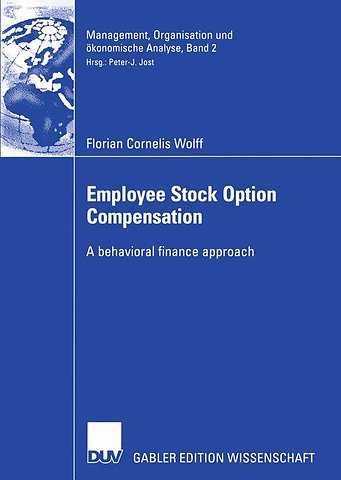Employee Stock Option Compensation
A behavioral finance approach
Paperback Engels 2004 9783824482139Samenvatting
Over the last years stock options have become an integral part of the compensation of senior managers in Germany: Originating in the USA in the 1950s, this form of compensation gained increasing popularity among German corporations during the 1990s, so that by today far over 100 German listed companies grant stock option plans to their employees. Based on recent research the average German CEO ("Vor standsvorsitzender") receives approximately 10% of his salary in form of stock op tions. The ongoing globalisations of business practises as well as the boom of the Neuer Markt have been key drivers of this development. Initially, from an economic perspective the increasing importance of stock option plans in the compensation of senior managers has to be welcomed: Assuming that senior managers through their actions have the ability to influence the stock price of their companies, stock options represent a performance based type of pay that im proves the incentives to senior managers to create additional shareholder value. However, this perspective often neglects the potential costs created by such an in centive instrument. Several research studies suggest that companies in some cases generate additional costs through the granting of stock options that can exceed the benefits created by their incentive effect.
Specificaties
Lezersrecensies
Inhoudsopgave
Anderen die dit kochten, kochten ook
Rubrieken
- advisering
- algemeen management
- coaching en trainen
- communicatie en media
- economie
- financieel management
- inkoop en logistiek
- internet en social media
- it-management / ict
- juridisch
- leiderschap
- marketing
- mens en maatschappij
- non-profit
- ondernemen
- organisatiekunde
- personal finance
- personeelsmanagement
- persoonlijke effectiviteit
- projectmanagement
- psychologie
- reclame en verkoop
- strategisch management
- verandermanagement
- werk en loopbaan






